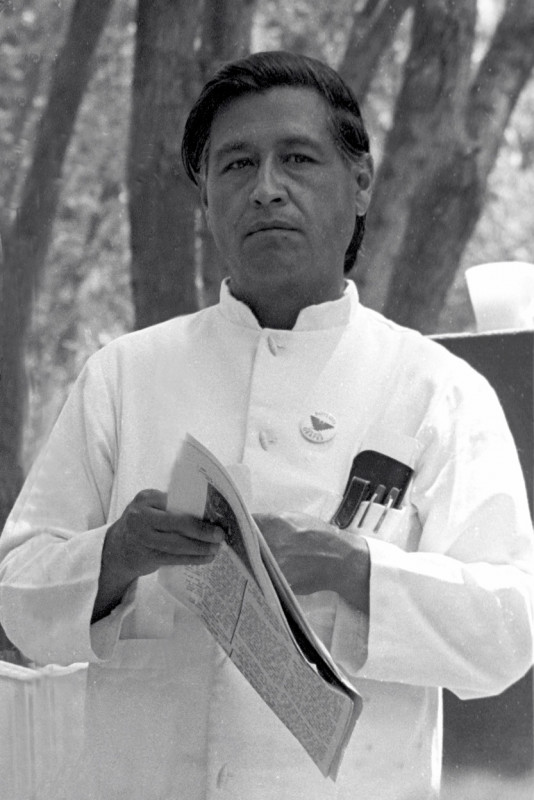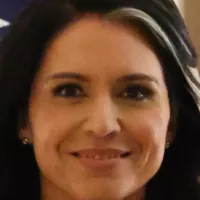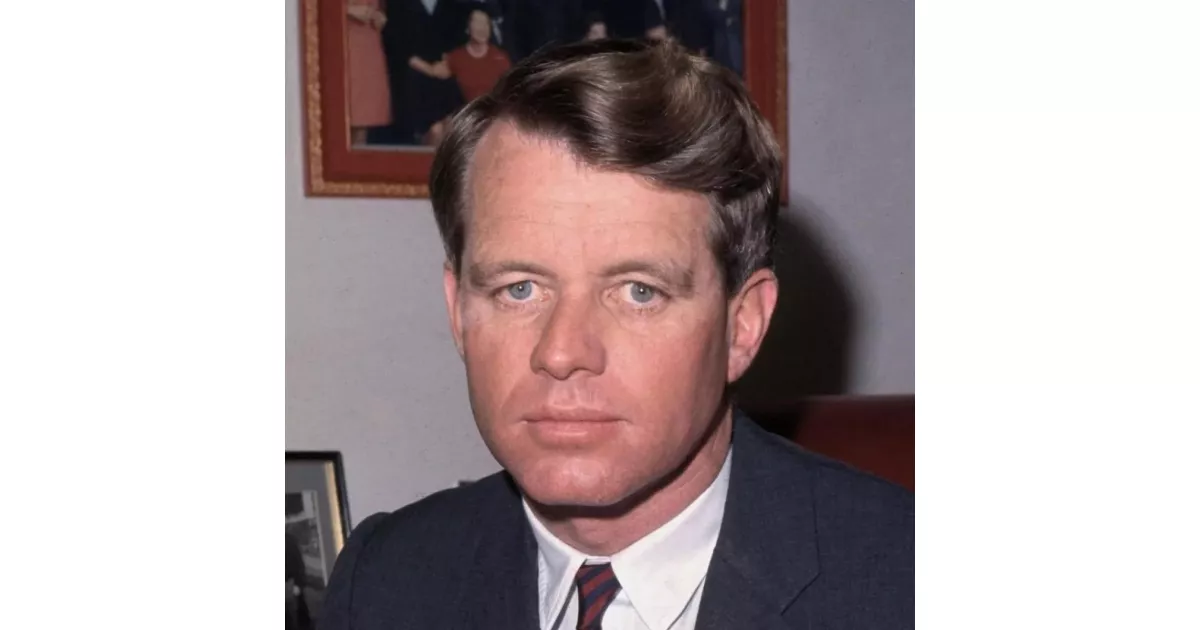An overview of the childhood and early education of Robert F. Kennedy, highlighting the experiences that shaped the journey.
Robert F. Kennedy (RFK) was a prominent American politician and lawyer. He served as the 64th U.S. Attorney General from 1961 to 1964 and as a U.S. Senator from New York from 1965 until his assassination in 1968. At the time of his death, he was a leading candidate for the Democratic presidential nomination. Like his brothers, John and Ted, RFK was a key figure in the Democratic Party and a symbol of modern American liberalism.
November 20, 1925: Robert F. Kennedy Born
Robert Francis Kennedy, also known as RFK, was born on November 20, 1925. He later became an American politician and lawyer, serving as the 64th United States Attorney General and a U.S. Senator from New York.
1938: Family Moved to London
In 1938, Robert F. Kennedy's family moved to London, where his father served as the U.S. ambassador to the Court of St James's.
1940: Kennedy Family Returned to US
In 1940, the Kennedy family returned to the United States just before the outbreak of World War II in Europe.
September 1942: Attended Milton Academy
In September 1942, Robert F. Kennedy attended Milton Academy, a preparatory school near Boston, Massachusetts, for 11th and 12th grades.
1943: Enlisted in US Naval Reserve
In 1943, six weeks before his 18th birthday, Robert F. Kennedy enlisted in the United States Naval Reserve as a seaman apprentice.
March 1944: Released from Active Duty
In March 1944, Robert Kennedy was released from active duty and left Milton Academy early to report to the V-12 Navy College Training Program at Harvard College.
May 1944: Graduation from Milton Academy
Robert F. Kennedy graduated from Milton Academy in May 1944.
August 1944: Death of Joseph Kennedy Jr.
In August 1944, Robert Kennedy's oldest brother, Joseph Jr., died when his bomber exploded during a volunteer mission known as Operation Aphrodite. This profoundly affected Robert and his family.
November 1944: Relocated to Bates College
In November 1944, Robert Kennedy was relocated to Bates College in Lewiston, Maine from Harvard.
June 1945: Returned to Harvard
Robert Kennedy returned to Harvard in June 1945 after attending Bates College.
December 15, 1945: USS Joseph P. Kennedy Jr. Commissioned
On December 15, 1945, the U.S. Navy commissioned the destroyer USS Joseph P. Kennedy Jr., named after Robert's deceased brother.
December 1945: Meeting Ethel Skakel
In December 1945, Robert F. Kennedy met Ethel Skakel during a skiing trip to Mont Tremblant Resort in Quebec, Canada.
January 1946: Completed Post Training Requirements
In January 1946, Robert Kennedy completed his post-training requirements at Harvard.
February 1, 1946: Served on USS Joseph P. Kennedy Jr.
On February 1, 1946, Robert Kennedy served aboard the USS Joseph P. Kennedy Jr. as a seaman apprentice on the ship's shakedown cruise in the Caribbean.
May 30, 1946: Honorable Discharge From Navy
On May 30, 1946, Robert Kennedy received his honorable discharge from the Navy. He was eligible for the American Campaign Medal and the World War II Victory Medal.
June 1948: Reported on the Berlin Blockade
In June 1948, Robert F. Kennedy, working as a correspondent for The Boston Post, reported on the Berlin Blockade.
September 1948: Enrolled at University of Virginia
In September 1948, Robert F. Kennedy enrolled at the University of Virginia School of Law in Charlottesville.
1948: Graduated from Harvard
In 1948, Robert Kennedy graduated from Harvard with a bachelor's degree in political science.
June 17, 1950: Marriage to Ethel Skakel
On June 17, 1950, Robert F. Kennedy married Ethel Skakel at St. Mary's Catholic Church in Greenwich, Connecticut. They had met on a skiing trip in December 1945 and would later have 11 children together.
June 1951: Graduated From Law School
In June 1951, Robert F. Kennedy graduated from law school, finishing 56th in a class of 125.
1951: Birth of Kathleen Kennedy
In 1951, Kathleen Kennedy, Robert and Ethel Kennedy's first child, was born.
1951: Admitted to Massachusetts Bar
In 1951, Robert Kennedy was admitted to the Massachusetts Bar and started work as a lawyer in the Internal Security Division of the U.S. Department of Justice.
February 1952: Transferred to Criminal Division
In February 1952, Robert Kennedy was transferred to the Criminal Division to help prepare fraud cases against former officials of the Truman administration before a Brooklyn grand jury.
June 6, 1952: Resigned to Manage Senate Campaign
On June 6, 1952, Robert Kennedy resigned from his position in the Criminal Division of the Justice Department to manage his brother John's U.S. Senate campaign in Massachusetts.
December 1952: Appointed Assistant Counsel
In December 1952, Robert Kennedy was appointed as one of 15 assistant counsel to the U.S. Senate Permanent Subcommittee on Investigations by Senator Joseph McCarthy.
1952: Birth of Joseph Kennedy
In 1952, Joseph Kennedy, Robert and Ethel Kennedy's second child, was born.
July 1953: Resigned From Subcommittee
In July 1953, Robert Kennedy resigned as assistant counsel to the U.S. Senate Permanent Subcommittee on Investigations.
January 1954: Professional and Personal Nadir
From July 1953 to January 1954 was a "professional and personal nadir" for Robert Kennedy, as he tried to prove himself to his family.
February 1954: Rejoined Senate Committee Staff
In February 1954, Robert Kennedy rejoined the Senate committee staff as chief counsel for the Democratic minority.
1954: Birth of Robert Kennedy Jr.
In 1954, Robert Kennedy Jr., Robert and Ethel Kennedy's third child, was born.
January 1955: Became Chief Counsel
When Democrats gained a Senate majority in January 1955, Robert Kennedy became chief counsel and was a background figure in the Army–McCarthy hearings of 1954.
1955: Birth of David Kennedy
In 1955, David Kennedy, Robert and Ethel Kennedy's fourth child, was born.
1956: Birth of Mary Courtney Kennedy
In 1956, Mary Courtney Kennedy, Robert and Ethel Kennedy's fifth child, was born.
1956: Aide to Adlai Stevenson II
In 1956, Robert Kennedy worked as an aide to Adlai Stevenson II during the presidential general election, which helped him learn how national campaigns worked.
1956: Purchase of Hickory Hill Estate
In 1956, the Kennedys purchased Hickory Hill, a six-acre estate in McLean, Virginia, from Robert's brother John. They were known for hosting gatherings with impressive and eclectic guest lists.
1956: Massachusetts Delegate at Democratic National Convention
Robert Kennedy served as a Massachusetts delegate at the 1956 Democratic National Convention, joining in what was ultimately an unsuccessful effort to help JFK get the vice-presidential nomination.
1957: Chief Counsel to McClellan Committee
From 1957 to 1959, Robert Kennedy served as the chief counsel to the U.S. Senate's Select Committee on Improper Activities in Labor and Management, known as the McClellan committee, to investigate labor racketeering.
1958: Birth of Michael Kennedy
In 1958, Michael Kennedy, Robert and Ethel Kennedy's sixth child, was born.
1959: Served as Chief Counsel to McClellan Committee
From 1957 to 1959, Robert Kennedy served as the chief counsel to the U.S. Senate's Select Committee on Improper Activities in Labor and Management.
1959: Birth of Mary Kerry Kennedy
In 1959, Mary Kerry Kennedy, Robert and Ethel Kennedy's seventh child, was born.
1960: Experiences with Anti-Catholicism
In 1960, during his brother's presidential campaign, Kennedy was deeply shaken by the anti-Catholicism he encountered, especially among Protestant intellectuals and journalists, leading him to state, "Anti-Catholicism is the anti-semitism of the intellectuals."
1962: Visit to the Vatican
In 1962, Robert and Ethel Kennedy visited the Vatican, where Pope John XXIII gave them medals and rosaries for themselves and their children.
August 1963: Death and Re-interment of Patrick Bouvier Kennedy
In August 1963, Patrick Bouvier Kennedy, son of President Kennedy, died two days after his birth and was re-interred at Arlington National Cemetery.
November 22, 1963: Assassination of John F. Kennedy
On November 22, 1963, Robert Kennedy was at home when J. Edgar Hoover called to inform him that his brother, President Kennedy, had been shot. Following the call, Kennedy instructed McGeorge Bundy to change the locks on the president's files, ordered the Secret Service to dismantle the hidden taping system in the Oval Office and cabinet room, and met with CIA director John McCone to ask about CIA involvement in the assassination.
December 5, 1963: Burial of President Kennedy's Infants
On December 5, 1963, after President Kennedy was interred in Arlington Cemetery, his two infants, Patrick Bouvier Kennedy and Arabella, were buried next to him in a private ceremony.
1963: Birth of Christopher Kennedy
In 1963, Christopher Kennedy, Robert and Ethel Kennedy's eighth child, was born.
April 1964: Vice-presidential prospects
An April 1964 Gallup poll indicated that Robert Kennedy was the vice-presidential choice of 47 percent of Democratic voters.
June 1964: Offer to become U.S. ambassador to South Vietnam
In June 1964, Robert Kennedy offered to succeed Henry Cabot Lodge Jr. as U.S. ambassador to South Vietnam, but President Johnson rejected the idea. Kennedy also considered leaving politics after his brother Ted Kennedy's plane crash on June 19.
July 1964: Johnson rules out cabinet members as running mates
In July 1964, President Johnson issued an official statement ruling out all of his current cabinet members, including Robert Kennedy, as potential running mates. This decision caused disappointment and drew angry letters directed towards both Johnson and his wife.
August 25, 1964: Announcement of U.S. Senate candidacy
On August 25, 1964, Robert Kennedy announced his candidacy for the U.S. Senate representing New York. He resigned as attorney general on September 2. President Johnson supported Kennedy's campaign.
September 27, 1964: Statement on the Warren Commission report
On September 27, 1964, Robert Kennedy issued a statement asserting his conviction that Lee Harvey Oswald acted alone in the assassination of President Kennedy. He stated that he had been briefed on the report and was satisfied that the commission had investigated every lead and examined every piece of evidence.
1964: Reviewing the Economic Opportunity Act
In 1967, Kennedy reviewed the effectiveness of the Economic Opportunity Act of 1964 as a member of the Senate committee. Kennedy sought to remedy the problems of poverty and urban decay through legislation to encourage private industry through tax breaks to locate in poverty-stricken areas.
1964: Legal Residence on Cape Cod
Until 1964, Robert Kennedy and his family maintained their legal residence in Hyannis Port, Massachusetts on Cape Cod.
June 1965: Kennedy's Senate Speech on Nuclear Proliferation
In June 1965, Robert F. Kennedy delivered a speech in the Senate on nuclear proliferation, drawing a large audience of over 50 senators. This event highlighted his early influence in Congress due to his connection to President Kennedy.
December 1965: Kennedy Advised McNamara to Counsel Johnson for Ceasefire
In December 1965, Robert Kennedy advised Defense Secretary Robert McNamara to counsel Johnson to declare a ceasefire in Vietnam, a bombing pause over North Vietnam, and to take up an offer by Algeria to serve as an "honest broker" in peace talks.
1965: Birth of Maxwell Kennedy
In 1965, Maxwell Kennedy, Robert and Ethel Kennedy's ninth child, was born.
1965: Purchase of Manhattan Apartment
In 1965, Robert F. Kennedy purchased an apartment at United Nations Plaza in Manhattan.
March 1966: Kennedy Investigates Farm Workers' Conditions in Delano
In March 1966, Robert F. Kennedy attended a Senate Labor Committee hearing in Delano, California to investigate farm workers' conditions at the request of Walter Reuther. Moved by what he saw, Kennedy engaged with Sheriff Leroy Galyen and emphasized the importance of recognizing migrant workers as human beings.
June 1966: Kennedy Visits Apartheid-Era South Africa
In June 1966, Robert F. Kennedy visited apartheid-era South Africa, accompanied by his wife, Ethel, and aides. Kennedy spoke against the oppression of the native population, receiving praise internationally and being welcomed by the black population.
1966: Meeting with Arthur M. Schlesinger Jr.
After a meeting with Robert Kennedy in 1966, historian Arthur M. Schlesinger Jr. wrote that Kennedy believed that the Warren Commission's report was poorly done and would not endorse it but was unwilling to criticize it and reopen the tragic business.
1966: Amendment to the Economic Opportunity Act
In 1966, Kennedy sought to remedy the problems of poverty and urban decay through an amendment to the Economic Opportunity Act. This encouraged private industry through tax breaks to locate in poverty-stricken areas, thus creating jobs for the unemployed.
1966: Algeria to serve as a mediator in peace talks
In 1966, the left-wing Algerian government indicated in 1965–1966 that it was willing to serve as a conduit for peace talks between North Vietnam and the National Liberation Front, but most of Johnson's advisers were leery of the Algerian offer.
April 1967: Kennedy Visits the Mississippi Delta
In April 1967, as a member of the Senate committee, Kennedy visited the Mississippi Delta, witnessing poverty and starvation and becoming deeply moved and outraged, which altered Marian Wright Edelman's perception of him.
1967: Birth of Douglas Kennedy
In 1967, Douglas Kennedy, Robert and Ethel Kennedy's tenth child, was born.
April 4, 1968: Indianapolis Speech Quoting Aeschylus
On April 4, 1968, following the assassination of Martin Luther King Jr., Kennedy quoted Aeschylus in his Indianapolis speech, finding solace in ancient Greek playwrights and poets.
June 5, 1968: RFK Shot After Winning Primary
Shortly after winning the California primary around midnight on June 5, 1968, Robert F. Kennedy was shot by Sirhan Sirhan.
1968: Birth of Rory Kennedy
In 1968, Rory Kennedy, Robert and Ethel Kennedy's eleventh child, was born.
1971: Publication of We Band of Brothers
In his 1971 book We Band of Brothers, aide Edwin O. Guthman recounted Kennedy admitting to him an hour after receiving word of his brother's death that he thought he would be the one "they would get" as opposed to his brother.
2009: Edward M. Kennedy's Night Burial
In 2009, Senator Edward M. Kennedy, Robert's brother, was also buried at night in Arlington National Cemetery.
Mentioned in this timeline

Jupiter is the fifth and largest planet from the Sun...

Martin Luther King Jr was a pivotal leader in the...

John F Kennedy JFK was the th U S President...

Joe Biden a member of the Democratic Party served as...

Cesar Chavez was a prominent American labor leader and civil...
California is a U S state on the Pacific Coast...
Trending
2 months ago Jacksonville area anticipates rain as warm trend persists in Northeast Florida, Southeast Georgia.

8 months ago Wozniacki and Williams address retirement; Wozniacki eyes Paolini as French Open dark horse.

3 months ago Rybakina stuns Swiatek, Advances to WTA Finals Semifinal in Riyadh

3 months ago Donna Vekic at WTA Chennai, Jones debuts, Parry Prediction, Chennai Open 2025

3 months ago Republicans Question Trump's Drug War and Military Actions: A Shift in Stance?

3 months ago Aryna Sabalenka aims for first WTA Finals title amid strong competition in Riyadh.
Popular

Thomas Douglas Homan is an American law enforcement officer who...

William Franklin Graham III commonly known as Franklin Graham is...

Jupiter is the fifth and largest planet from the Sun...

XXXTentacion born Jahseh Dwayne Ricardo Onfroy was a controversial yet...

Kristi Noem is an American politician who has served as...

Instagram is a photo and video-sharing social networking service owned...

